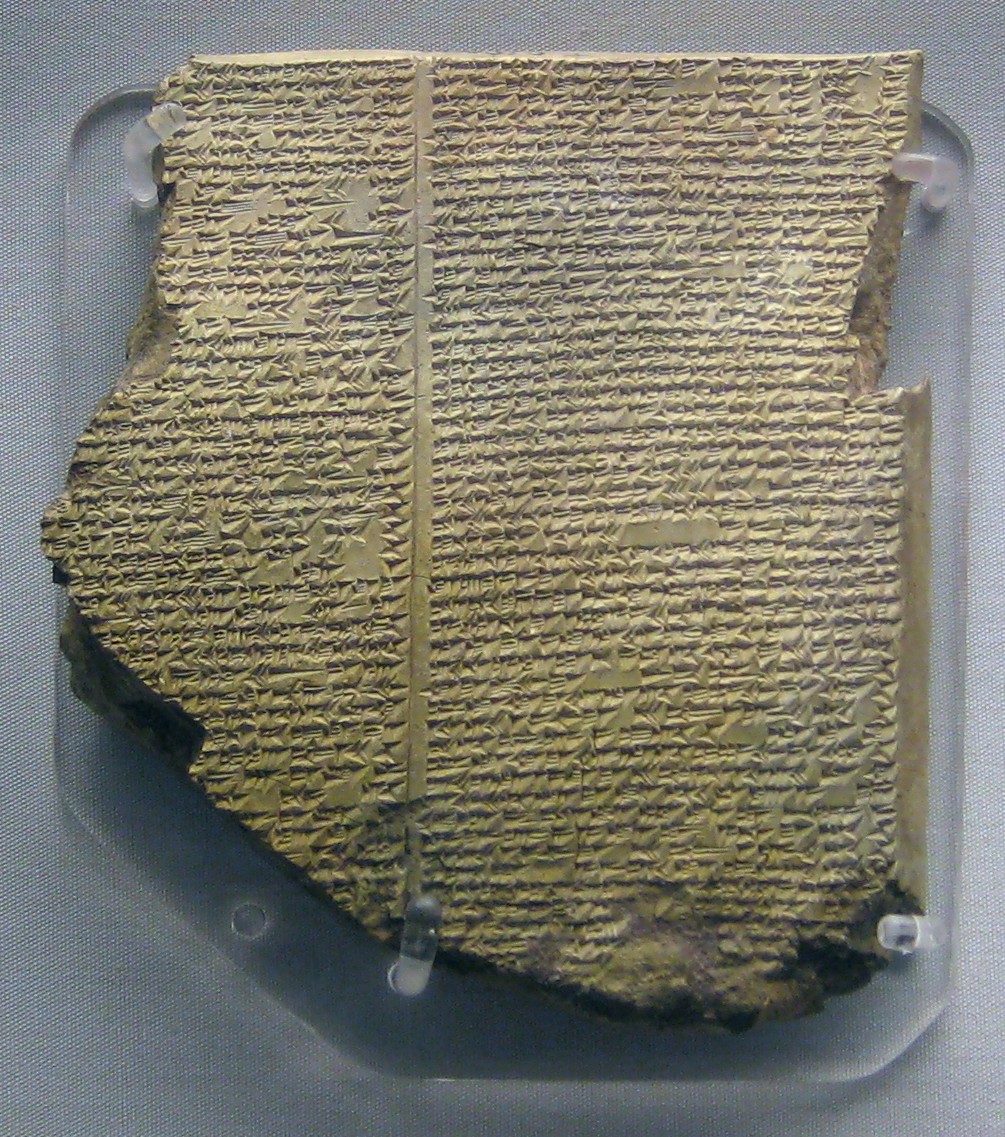The Epic of Gilgamesh (partially lost ancient Mesopotamian epic poem; 21st-13th century B.C.)
The Epic of Gilgamesh is an Ancient Mesopotamian epic poem. One of the oldest surviving literary works, the poem follows Gilgamesh, king of the city of Uruk, and Enkidu, a wild man created by the gods to stop Gilgamesh's tyranny over the people of Uruk. After Enkidu's death, Gilgamesh travels across the world in search for immortality. The epic is a notable piece of ancient literature, both for being the first known epic story and for influencing several historical works since, including similarities with events and themes of Homer’s epics and the Hebrew Bible.
Despite the epic's influence, several portions of the poem have not been recovered.
Overview
History
There exist two "versions" of the epic poem that are considered the most complete collections.
The first organized version of the poem, known as the "Old Babylonian version," is an Akkadian collection of tablets compiled sometime around the 18th century BCE.[1]. The two most complete of these tablets are known as the Yale tablet and the Pennsylvania tablet. This version is the oldest organized version, but it is thought to have been derived from five separate Sumerian stories, rather than a single epic, that trace as far back as around 2100 BCE.[2]
A later version, or the "Standard Babylonian version" or "Akkadian version" dates to between the 13th and 10th centuries BCE.[3] Edited by Mesopotamian scholar Sîn-lēqi-unninni, it is organized into 12 tablets, although the 12th tablet has elements that contradict earlier sections of the story and was likely sourced from a separate legend. This version was discovered by Hormuzd Rassam in 1853, at the Royal Library of Ashurbanipal near Mosul, Iraq.
Differences between versions
The two versions are differentiated and often referred to by their incipit, or their opening words. The older version begins with the words "Surpassing all other kings" (Akkadian: "šūtur eli šarrī"), while the standard version begins with the words "He who saw the deep" (Akkadian: "ša naqba īmuru"); "deep" is generally accepted to mean "unknown mysteries".[4]
Lost Portions
While much the Akkadian version has been found, "only about 2,000 out of the poem’s 3,000 lines have been discovered."[5]
The Old Babylonian Version, meanwhile, is mostly incomplete. The obverse of the Yale tablet is badly preserved, and its colophon is missing. Several of the other tablets in the collection have significant gaps in their content, and many portions of the story are missing simply because the tablets on which they were written have not been recovered.
Besides that, new discoveries are still being made. In 2011, the Sulaymaniyah Museum in Iraq purchased a previously-undiscovered version of Tablet V from a smuggler.[6] This new version adds about 20 lines to the part of the story taking place in the Cedar Forest.
References
- ↑ An article describing the Old Babylonian version. Retrieved 23 May '23
- ↑ ‘’The Epic of Gilgamesh: The Babylonian Epic Poem and Other Texts in Akkadian and Sumerian’’ by Andrew R. George. Retrieved 22 May ‘21
- ↑ Article about the Standard Babylonian version. Retrieved 23 May '23
- ↑ Article by Andrew George detailing the differences between the two versions. Retrieved 23 May ‘23
- ↑ The Epic of Gilgamesh: Lost and Found. Retrieved 23 May '23
- ↑ The Newly Discovered Tablet V of the Epic of Gilgamesh. Retrieved 23 May '23
